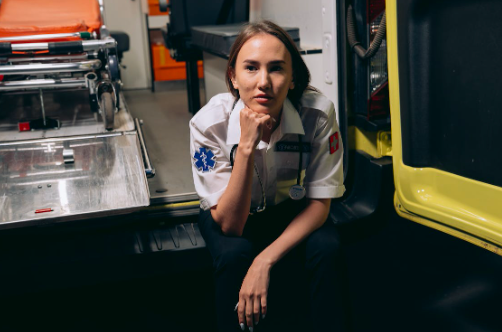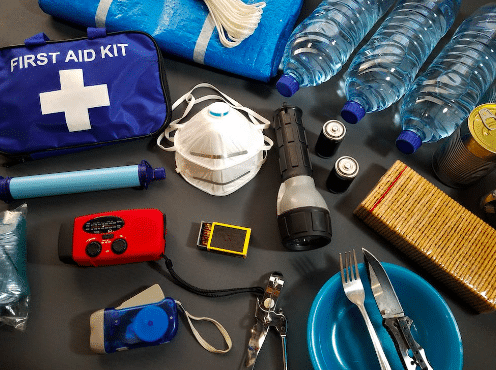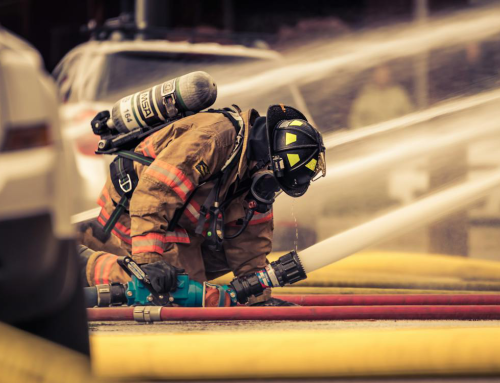Occupational First Aid (OFA) is a comprehensive training program designed to prepare individuals to respond to medical emergencies in the workplace.
The OFA Level 1 Vancouver course is the entry-level training that equips participants with the necessary skills and knowledge to provide basic first aid and life support in the workplace.
This article will provide an overview of what to expect from the occupational first aid level 1 training course, including the course content, delivery methods, and expected outcomes.
Course Content
The OFA Level 1 Vancouver training course is designed to provide participants with the basic knowledge and skills necessary to provide first aid and life support in the workplace. The course content covers a wide range of topics, including:
- Introduction to first aid
- Legal considerations in first aid
- Basic anatomy and physiology
- Understanding and assessing emergencies
- Airway management and breathing emergencies
- Circulatory emergencies
- Managing shock
- Wound care and bleeding control
- Burns and scalds
- Musculoskeletal injuries
- Medical emergencies, such as seizures and diabetic emergencies
- Environmental emergencies, such as hypothermia and hyperthermia
- Poisoning and substance abuse
- Psychological first aid and crisis intervention
- Record keeping and reporting
- Delivery Methods
The OFA 1 training course is typically delivered through a combination of classroom instruction and hands-on practical training. The classroom instruction provides participants with the theoretical knowledge necessary to understand the course content, while the hands-on practical training allows participants to apply this knowledge in simulated emergency situations.
The occupational first aid level 1 course may be delivered in a variety of formats, including in-person classroom instruction, online instruction, or a hybrid of both. In-person instruction provides participants with the opportunity to interact with the instructor and other participants, ask questions, and practice skills in a controlled environment. Online instruction provides the convenience of completing the course at the participant’s own pace and from their own location.
Expected Outcomes
Upon completion of the OFA 1 training course, participants should be able to:
- Recognize and respond appropriately to a wide range of medical emergencies in the workplace
- Demonstrate basic life support skills, including CPR and the use of an automated external defibrillator (AED)
- Apply basic first aid techniques, including wound care, bleeding control, and splinting, for better community health
- Recognize and respond appropriately to environmental emergencies, such as hypothermia and hyperthermia
- Demonstrate effective communication skills in emergency situations
- Understand the legal considerations in providing first aid in the workplace
- Maintain accurate records and report incidents appropriately
Benefits of OFA Level 1 Training
There are several benefits to completing the OFA 1 training course, including:
1. Increased Safety in the Workplace
By providing basic first aid and life support in the workplace, occupational first aid level 1 trained individuals can help to prevent accidents from escalating into more serious situations.
This can help to increase overall safety in the workplace and reduce the risk of injury or illness.
2. Compliance with Regulatory Requirements
Many regulatory bodies require that workplaces have individuals on staff who are trained in first aid and life support.
Completing the first aid level 1 Vancouver training course can help to ensure that workplaces are compliant with these requirements.
3. Improved Emergency Response Times
When an emergency occurs in the workplace, a quick and effective response is essential.
OFA Level 1 trained individual can help to improve emergency response times by providing immediate care and stabilizing the situation until professional medical help arrives.
4. Reduced Insurance Costs
Many insurance companies offer discounts to workplaces that have employees who are trained in first aid and life support.
By completing the first aid level 1 Vancouver training course, workplaces may be able to reduce their insurance costs, which can be a significant financial benefit.
5. Personal Growth and Development
Completing the OFA Level 1 training course can provide individuals with a sense of personal growth and development.
Knowing that they have the skills and knowledge to respond effectively in an emergency situation can increase self-confidence and provide a sense of accomplishment.
6. Increased Confidence and Readiness
Completing the OFA Level 1 training course can help individuals to feel more confident in their ability to respond to emergencies in the workplace.
This increased confidence can help to ensure that individuals are prepared to take swift action in an emergency situation, which can make a significant difference in the outcome of the situation.
7. Better Team Collaboration
First aid level 1 Vancouver training is often conducted in groups, which provides an opportunity for individuals to work collaboratively and develop a sense of teamwork.
In the event of an emergency, this sense of teamwork can help individuals to work together effectively to provide the necessary support and care.
8. Improved Career Opportunities
Completing the OFA 1 training course can enhance an individual’s resume and provide a competitive edge in the job market.
Many employers value first aid and life support training and may require it as a prerequisite for certain job positions.
Conclusion
First aid level 1 Vancouver training allows individuals to learn important skills that can help deal with emergencies at the workplace. The course covers a number of topics, including basic anatomy, psychological first aid, and physiology. Most individuals will experience the course online and in-person through a mix of hands-on practical training, as well as conventional classroom instruction.
Once participants complete the course, they develop a wonderful understanding of how to respond and react in case of medical emergencies. They learn basic life skills, bleeding control, caring for wounds, and environmental emergencies. The best part is that these skills are not only taught in theory, but participants are also given in-person training to ensure that they are prepared for real-life situations.
There are multiple benefits to completing the OFA 1 training course. Overall, it is a valuable investment for individuals and workplaces, providing important knowledge and skills to ensure the well-being and safety of employees in case of a medical emergency. Learn more here.









